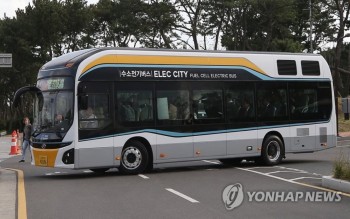South Korea Increases Subsidies for Hydrogen Fuel-Cell Buses to Promote Eco-Friendly Transportation
Key Ideas
- South Korea will raise subsidies for hydrogen fuel-cell buses to 5,000 won per kilogram to encourage eco-friendly public transportation.
- These efforts align with the 2030 National Determined Contribution goal to replace 25% of Seoul's metropolitan buses with hydrogen-fueled ones by 2030.
- The subsidy increase aims to make hydrogen fuel costs more competitive with electric buses, reducing operational costs by 22%.
- Challenges such as high fuel costs and the need for more hydrogen stations have slowed the adoption of hydrogen fuel-cell buses in South Korea.
The South Korean government announced an increase in subsidies for hydrogen fuel-cell buses from 3,600 won per kilogram to 5,000 won per kilogram to boost the use of eco-friendly public transportation. This decision is in line with the country's efforts to meet its 2030 Nationally Determined Contribution (NDC) goal. The transport ministry aims to replace a quarter of all metropolitan buses in the greater Seoul area with hydrogen-powered buses by 2030. Despite the environmental benefits of hydrogen fuel-cell buses, the industry has faced challenges such as high fuel costs in comparison to electric buses and the insufficient infrastructure of hydrogen charging and maintenance stations in the country. The subsidy increase is expected to significantly reduce operational costs for hydrogen buses, making them more competitive with electric counterparts. This move is a positive step towards promoting sustainable transportation and reducing carbon emissions in South Korea.
Topics
Public Transit
Eco-friendly
Subsidies
Public Transportation
Fuel-cell Buses
Transport Ministry
2030 NDC Goal
Latest News
